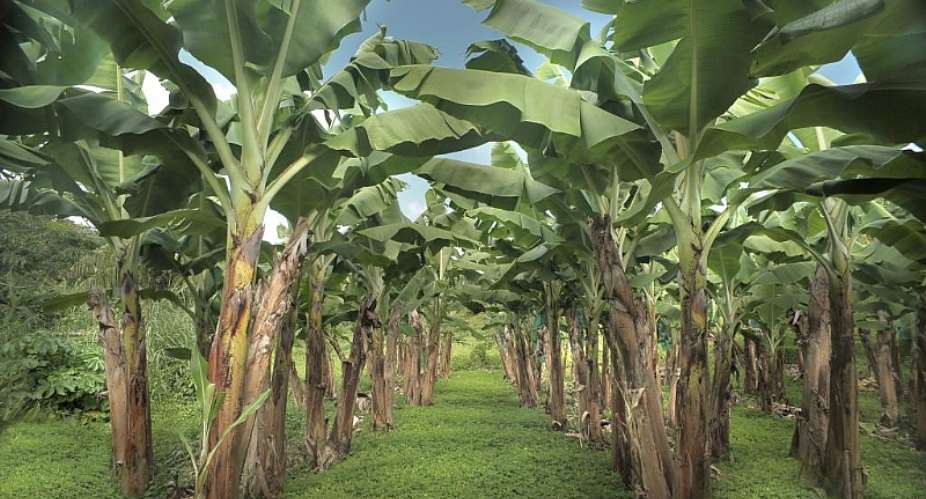The results of a parliamentary commission of inquiry into the use of the carcinogenic pesticide chlordecone in the Guadeloupe and Martinique show that the government “consistently failed” to respond to environmental and health warnings over two decades.
1. What is chlordecone?
Chlordecone is a toxic pesticide that was used to treat bananas. It was classified as carcinogenic by the World Health Organisation in 1979. The US imposed a ban two years earlier, but it took until 1990 for France to impose a ban on chlordecone. Planters in the French Caribbean islands of Guadeloupe and Martinique were allowed to continue using chlordecone until 1993.
2. Why was chlordecone used in Guadeloupe and Martinique?
Banana plantations on the two islands were heavily affected by a weevil in the 1970s. The insect that originates from south-east Asia, burrows into the trunk of a banana tree sometimes killing it completely. Guadeloupe and Martinique are heavily dependent on producing bananas, and export over 270,000 tonnes per year, of which 70 percent are sold in mainland France. Planters lobbied hard to be able to use chlordecone in order to protect the lucrative banana sector that employs over half of agricultural workers on the two islands.
3. What effects does chlordecone have on human health and the environment?
Chloredecone was used so heavily used in Guadeloupe and Martinique over almost decades that it is found in the sol, rivers, coastal waters, as well as in animal and human tissue. An estimated 95 percent of Guadeloupians and 92 percent of Martiniquais have traces of chlordecone in their body tissues, according to a document published by the health ministry in 2018.
Chloredecone is what's known in science as an 'endocrine disruptor'. The most senior public health official in France, Sebastien Denys told Le Monde newspaper that “even small quantities of chlordecone in body tissue can have health consequences”. Being exposed to chlordecone increases the risk of premature births, arrested cognitive development and motoric disorders in children.
There is no proven link between exposure to chlordecone and prostate cancer, but rates of the disease are twice as high in Guadeloupe and Martinique than in mainland France. A study published in March that surveyed 327 prostate cancer patients in Guadeloupe found that men there who had been exposed to chlordecone were twice as likely to go into remission.
Although the use of chlordecone was banned over two decades ago in the French Caribbean, it may stay in some soil types for up to seven centuries.
4. How has the French state responded to the use of chlordecone?
A parliamentary commission released its findings on the 25 November found that the French government consistently failed to respond to warnings about the environmental and health implications of chlordecone use from as far back as 1969.
In 1991 the EU published a directive calling on France to ban the use of chlordecone in Guadeloupe and Martinique. But two successive agriculture ministers in François Mitterrand's government chose to derogate on the directives, according to the parliamentary commission, that also blamed “intense lobbying” on the part of planters from the two islands. It also found that some elected officials on the two islands pushed to allow the use of the so-called “miracle molecule” in order to safeguard the economic well-being of Guadeloupe and Martinique.
In July, the Representative Council of France's Black Associations, sued the French government after it was revealed all archives concerning chlordecone have disappeared.
5. What is going to happen now?
Justine Benin, the head of the parliamentary commission is recommending that compensation be paid to agricultural workers and fishermen whose livelihoods have been significantly curtailed by the use of chlordecone.
Benin is also calling for a proposed bill that would pay compensation to people who have fallen ill to be strengthen before it is voted on in parliament in 2020.
The Commission has recommended that an in depth scientific study be conducted that focuses both on possible preventative measures, and surveys the extent of the damage caused by chlordecone.





 We’ll protect state wealth from opaque deals – Prof Jane Naana
We’ll protect state wealth from opaque deals – Prof Jane Naana
 Mauritania president says running for second term in June polls
Mauritania president says running for second term in June polls
 I won't ever say I was a mere driver’s mate' — Prof. Opoku-Agyemang
I won't ever say I was a mere driver’s mate' — Prof. Opoku-Agyemang
 2024 polls: 'EC struggling to defend credibility'— Prof. Opoku-Agyemang
2024 polls: 'EC struggling to defend credibility'— Prof. Opoku-Agyemang
 Akufo-Addo gov't's 'greed, unbridled arrogance, unrestrained impunity, sheer dis...
Akufo-Addo gov't's 'greed, unbridled arrogance, unrestrained impunity, sheer dis...
 Election 2024: Ghana needs an urgent reset, a leadership that is inspiring – Ma...
Election 2024: Ghana needs an urgent reset, a leadership that is inspiring – Ma...
 Partner NDC to rollout a future of limitless prospects – Prof Jane Naana Opoku-A...
Partner NDC to rollout a future of limitless prospects – Prof Jane Naana Opoku-A...
 NPP will remain in gov’t till Jesus comes — Diana Asamoah
NPP will remain in gov’t till Jesus comes — Diana Asamoah
 Sunyani Technical University demands apology from former SRC president over sex-...
Sunyani Technical University demands apology from former SRC president over sex-...
 'Dumsor' was resolved by Mahama but ‘incompetent' Akufo-Addo has destroyed the g...
'Dumsor' was resolved by Mahama but ‘incompetent' Akufo-Addo has destroyed the g...
